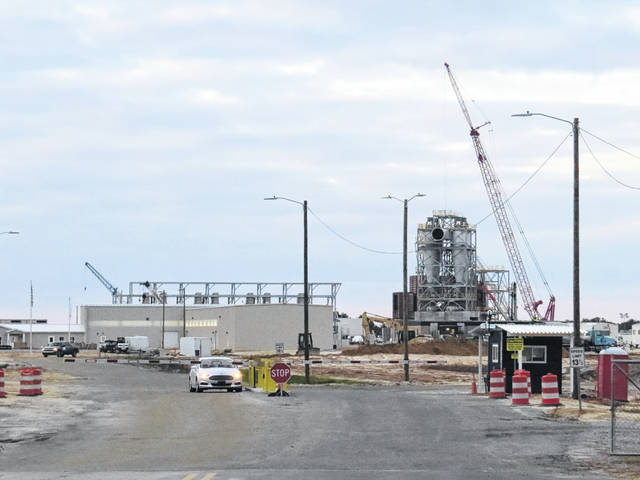HAMLET — The North Carolina Department of Environmental Quality’s Division of Air Quality reviewed concerns raised during a public hearing on Enviva’s Hamlet facility’s request for a modified permit in November and based the new permit on the findings from this review.
At that public hearing, 17 people spoke in favor of the permit and 26 people spoke against it. During the public comment period, 33 written comments were submitted and DEQ received 581 emails addressing the permit. Enviva was requesting to increase its production of wood pellets from 537,625 oven-dried tons per year to 625,011 and to be reclassified as a PSD Minor stationary source of pollution by adding on more pollution control devices with only initial testing for certain pollutants.
Of those emails, DEQ received 390 apparently using similar language, but the portion that warranted change to the company’s permit was the portion questioning the pollutant testing at Enviva’s other facilities, specifically its Sampson facility, which was found to be out of compliance with emissions limits and prompted additional controls.
In DEQ’s response, Hearing Officer Bruce Ingle notes that each Enviva facility has unique equipment and therefore should not all be assumed to be in compliance. The report recommends the permit be modified to include initial testing of the Hamlet facility’s emissions with additional annual testing and tests following any increases in wood pellet production beyond the maximum amount to ensure that they comply with state emissions regulations.
Asked if these changes to the Hamlet facility would be applied to all of Enviva’s facilities in the future, DEQ spokesperson Sharon Martin said they “will look at whether these conditions can apply to other facilities.”
The 390 emails also expressed concern that the wood pellet industry is “destroying and degrading tens of thousands of acres of North Carolina forests” which “store carbon, protect us from flooding and storms, and provide us with clean air and water,” and warned that the expansion of the industry “hampers North Carolina’s ability to meet its commitment on climate mitigation and adaptation” and the state’s ability to recover from Hurricane Florence.
In his response, Ingle cited Enviva’s website where the company defines its Track and Trace program which is designed to monitor the wood it receives from sawmills and other landowners. Ingle sought the opinion of the North Carolina Forest Service, which said that the Track and Trace program is the means by which the company encourages its suppliers to participate in the NCFS Certification program. The aim of the Certification program is “public awareness and acceptance of forest management and for achieving environmental, social and economic benefits.”
The report states that the NCFS oversees the sustainability of timber crops, which are supplied to Enviva, and they expressed no concerns that the facility suppliers are operating outside generally accepted forest management practices. No changes were made to Enviva’s original permit because of these concerns.
In response to concerns that Enviva has a history of not allowing sufficient public input, Ingle provided a timeline on the public comment periods allowed by each of the company’s other facilities in North Carolina, including the Hamlet facility, which advertised and held a public comment period from Dec. 15, 2015 to Jan. 14, 2016. The state received about 300 comments during this period.
The report states that comments expressing concern about Enviva violating the Clean Air Act if the expansion of wood pellet production was allowed are not warranted because the permit includes additional controls to offset the increased emissions. Specifically, the report states that the new controls would result in decreases of VOC, HAPS, TAPs and PM, and increases in NOx, sulfur dioxide and carbon dioxide, though these increases are not high enough to warrant additional controls.

